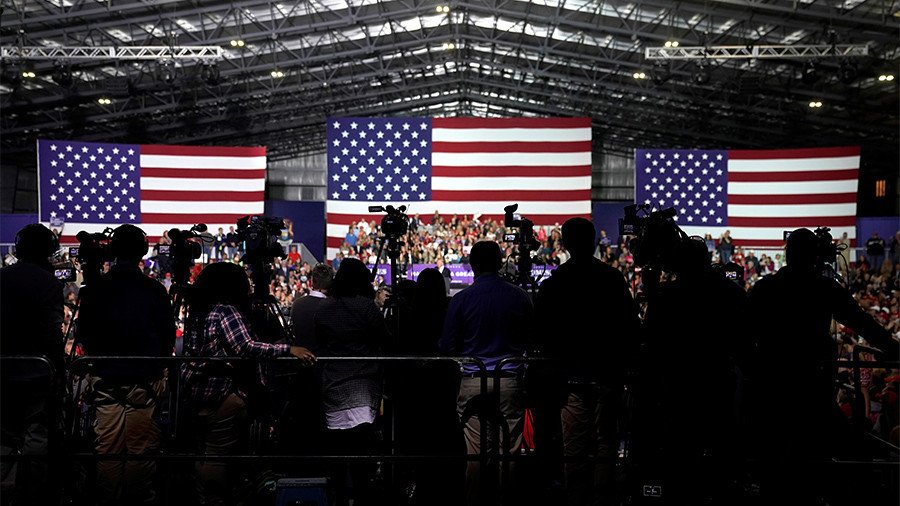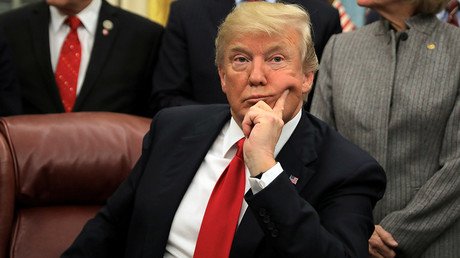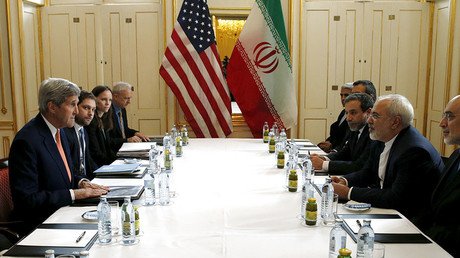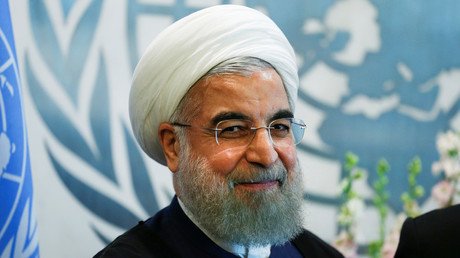Zero hour on Iran deal: Could breaking Iran deal damage US reputation globally?

US President Donald Trump will decide on Tuesday whether or not to pull the US out of the Iran nuclear deal. Withdrawing from the deal could undermine the US in the coming negotiations with North Korea.
Trump has repeatedly criticized the deal, officially known as the Joint Comprehensive Plan of Action (JCPOA), for being overly lenient on Tehran, calling it “insane” and the “worst deal ever.” Signed in 2015 by Iran and the five permanent members of the United Nations Security Council plus Germany, the deal grants Iran sanctions relief in exchange for restrictions on nuclear activity.
The president has until May 12 to sign a sanctions waiver, or the deal is void. Trump’s decision is expected by 2pm local time on Tuesday, and he has so far given no indication that the US will remain party to the deal.
Iranian President Hassan Rouhani has warned the US will “regret it like never before in history” if the deal is broken, but later hinted that Iran may stay in the deal if the other signatories - Russia, the UK, France, China and Germany - remain committed.
With talks between Trump and North Korean leader Kim Jong-un rapidly approaching, could a decision by the US to renege on an earlier commitment send the wrong signals to Kim, and could it weaken the chances of peace on the Korean Peninsula?
Iran’s First Vice President Eshaq Jahangiri suggested that withdrawing from the deal would damage US credibility around the world.
“Today, the biggest power in the world is yelling that it does not accept it, it’s up to them what to do with the deal, but (from now on) naive individuals would accept to enter talks with such a country,” he told Iran’s ISNA news agency on Tuesday.
“If the incumbent US president does not accept the agreements signed by his predecessors in the previous administration, then assuredly no country in the world is able to trust the US because it is also possible to see the coming administration do not accept the agreements brokered by Trump’s administration,” Rear Admiral Ali Shamkhani, secretary of Iran’s Supreme National Security Council (SNSC) also said on Saturday.
While Iran has warned against leaving the deal, Israeli Prime Minister Benjamin Netanyahu gave a dramatic presentation at his country’s Defense Ministry last week, arguing that the Iran deal was “based on lies.”
Netanyahu presented documents allegedly stolen from Iran's ‘secret nuclear archive’, that he said prove Tehran “continued to preserve and expand its nuclear weapons know-how” after the signing of the deal. The US was quick to back up Netanyahu’s PowerPoint claims.
Several European leaders, most recently UK Foreign Minister Boris Johnson, and previously Federica Mogherini, the EU’s chief negotiator on the deal, have attempted to sway Trump towards remaining in the agreement. Trump has made no indication that his opinion of the deal has changed, but according to former Pentagon analyst Michael Maloof, his hardline approach could be a strategy to leverage the European leaders into renegotiating.
“President Trump who has shown a bombasity initially, and then he seeks to leverage other countries, to do what he wants them to do in order to gain control,” Maloof told RT. “He has the attention of the Europeans, that's for sure. And I think that the Europeans all of a sudden say, ‘Yeah, the deal is not perfect. We will work on it.”
Maloof does not see Trump exiting the deal on Tuesday. “My personal view is, he is going to kick the can, give the Europeans another three-months to try to improve the existing arrangement, although he is under severe pressure from the neocons to abandon it,” he said.
Two of Trump’s closest advisers, Secretary of State Mike Pompeo and National Security Adviser John Bolton, have both maintained a hardline view of Iran. Bolton has called the Iran deal a “strategic debacle,” while Pompeo called for new sanctions against Iran last month, saying: “Iran’s missiles prolong war and suffering in the Middle East, they threaten our security and economic interests and they especially threaten Saudi Arabia and Israel.”
In a poll taken last week, 56 percent of Americans support the Iran deal, while 26 percent oppose it. 68 percent of Democrat voters support the deal compared to 46 percent of Republicans. A Harvard-Harris survey taken last year, however, found that voters were not happy with the agreement as it is. A strong majority, including most democrats, wanted the Trump administration to renegotiate the JCPOA. They also wanted the deal to be ratified by Congress, instead of being implemented as an executive agreement, as former President Obama did in 2015.
Like this story? Share it with a friend!















